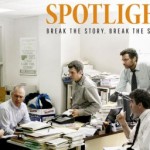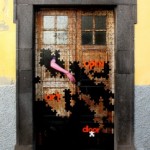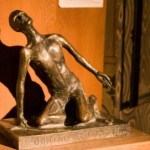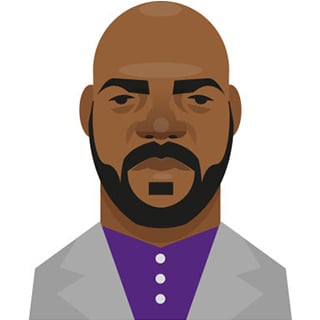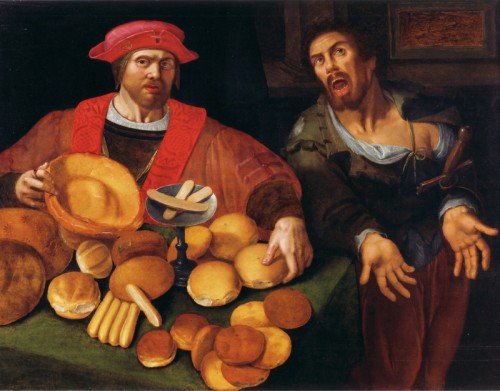 Once, and with sadness, a lawyer on the brink of retirement told me he had spent his career in the midst of fights over inheritance that occur between siblings. And really, he said, they are fighting over their parents love.
Once, and with sadness, a lawyer on the brink of retirement told me he had spent his career in the midst of fights over inheritance that occur between siblings. And really, he said, they are fighting over their parents love.
So the pain that Luke remembered in the shouted plea, tell my brother to divide the family inheritance with me, is deep and ongoing among us. Luke remembers Jesus using the moment to define greed (the storing up of treasures) as the opposite of living richly toward God.
And death, which triggers the distribution of accumulations, becomes the moment in which living richly towards God becomes evident. Or not.
Montaigne, the French Renaissance philosopher, wrote It’s not want, but rather abundance, that creates greed. In dire need, we want what we truly need, but in the midst of plenty, we want it all.
Theologian Walter Brueggeman, who spoke on Cape Cod last Saturday, says greed is born out of the idea of scarcity, and scarcity is born out of anxiety – and all three are acted upon in an abundant world. Abundance is denied, not trusted, forgotten in our culture.
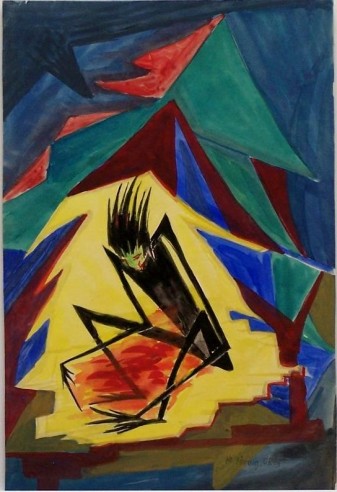 Rabbi Lawrence Kushner wrote: Wealth is the highly subjective sensation of having more than enough, so much that there is money to give away. For this reason, wealth is a function of generosity: the more you give, the richer you feel.
Rabbi Lawrence Kushner wrote: Wealth is the highly subjective sensation of having more than enough, so much that there is money to give away. For this reason, wealth is a function of generosity: the more you give, the richer you feel.
I read this, and remember an aged, poor, black woman, who sent Barack Obama $2.47 in an envelope, for his campaign fund. She had an abundance of hope in him. And just a little money, which she freely gave.
Nelson Mandela became a saint of survival in his 27 year imprisonment, encouraging black people in South Africa to hold on, as he was holding on. When he had absolutely nothing, he found he had an abundance of hope and the courage to give it away.
And the people who together have given over thirty million dollars to One Fund Boston, for those so badly injured in the Marathon bombing, gave hard-earned dollars in hope and as hope, which they call Strong, which means Not Beaten.
I wonder if little Prince George will ever feel he has money enough to give away? Nestled in his parents’ arm, there on the hospital steps in London, he had all he needed: loving arms, delighted parents, a soft blanket, a good car seat. And the hope of the world.
One day, he will inherit a billion dollars, several palaces, a treasury of world art, a bejeweled crown, a gilded carriage and footmen, and the sung allegiance of Britons and their Commonwealth friends: God Save Our Noble (in his case) King.
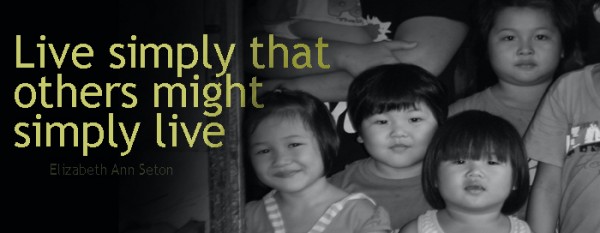 At his unveiling, on his second day, we drank in the happiness of his parents, his Dad’s father-comments. His Dad, Prince William longs for them to be left alone.
At his unveiling, on his second day, we drank in the happiness of his parents, his Dad’s father-comments. His Dad, Prince William longs for them to be left alone.
Yet it will not be by enjoying privacy in the midst of their wealth that they will draw us to give them allegiance, it will be by the ways in which they publicly mirror what we need to see in ourselves, and the ways in which they reassure us we are all part of their family. They do this by endlessly showing up, much as we do for one another. It’s grueling work, and not all the Queen’s forebears did it well. One recently dug-up king had been buried under a parking lot for centuries, in an unmarked grave. Another (Charles II) had his head chopped off for his unrelentingly stiff-necked attitude towards the changing public need.
England’s monarch no longer leads the wars, but still gives out the medals. It is not for her strong arm that the Queen is beloved, but for her long-armed embrace of everyone, especially when they are hurt or have excelled. She keeps inside her the idea of royalty as a sacred embodiment, but the image of what she embodies that has changed, the understanding of who God is and how God works among us, and what it takes to mirror that in the public eye. We are not finished understanding who God is, and who we may be.
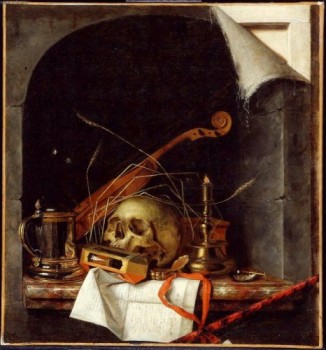 Elizabeth has pointed her scepter toward compassionate works, building the economy, using arts to increase hope. At night, in her bed, or when she is out walking with the corgis in Scotland, she must wonder sometimes if she has understood what it means to live richly towards God.
Elizabeth has pointed her scepter toward compassionate works, building the economy, using arts to increase hope. At night, in her bed, or when she is out walking with the corgis in Scotland, she must wonder sometimes if she has understood what it means to live richly towards God.
And so do we all. For in an economy based on the desire to have more, which arises from the anxiety that we do not have enough, in a world where what the Princess bought is now what we all want to buy, God, whose love is not for sale, is still abundant, but hard for us to find.
_______________________________________________________
Illustrations
1. Rich and Poor, by Unidentified Flemish Painter, 17th c. The Bread Museum, Ulm, Germany. Vanderbilt Divinity School Library, Art in the Christian Tradition.
2. Miser, by Hofheinz-Doring, Margret, 1926, digital imprint from
Vanderbilt Divinity School Library, Art in the Christian Tradition.
3. Live Simply That Others Might Simply Live, Poster, Elizabeth Seton Foundation.
4. Vanitas Still Life, by Gijsbrechts, Cornelius, 1659, Museum of Fine Arts, Boston.
Vanderbilt Divinity School Library, Art in the Christian Tradition.


